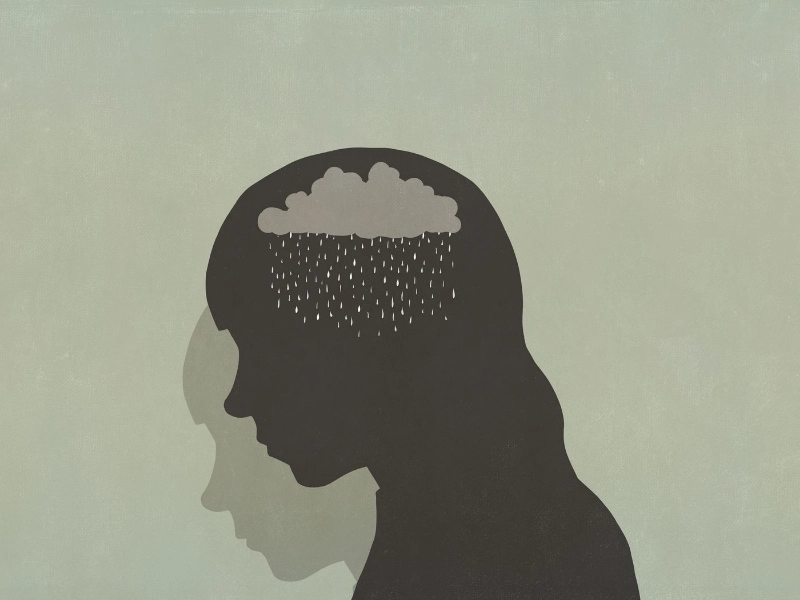How Does Depression Affect Thinking?
You might be curious about how depression impacts your thought process if you are experiencing it. Certain drugs may slow down your thinking, according to research. It is not, however, the only adverse consequence of depression drugs. Without the aid of medicine, depression has been shown to slow down thought processes as well. Your executive thinking skills are slowing down, which is the cause of this impairment. Planning, organising, and problem-solving all require these abilities. Compared to other mental processes, these are more intricate.
Indecisiveness

Making a coping strategy is the best way to address indecisiveness if it affects you. Consider the worst-case scenario as you get ready for the event. You will experience less tension in this way. If you can't decide, you should get expert assistance to identify the underlying reason.
This lack of clarity is frequently a sign of depression. It is, in fact, a hallmark sign of major depressive disorder (MDD). Decision-making is challenging for those who suffer from this mental disease, according to research. They frequently believe that nothing matters and that their lives are meaningless. This may cause individuals to become unaffected by the choices they make.
Executive dysfunction

Numerous studies have demonstrated that executive function is compromised in those who are depressed. These findings imply that the impairment persists even after clinical recovery and is not correlated with age or severity. It has been suggested by researchers that in depressed people, these deficiencies might be secondary to a main attention deficiency. These results highlight the significance of evaluating executive function in depressed patients.
A mental illness known as executive dysfunction is brought on by abnormalities in neurotransmitters, the brain's chemical messengers, and aberrant brain development. Numerous different mental and physical disorders can be the cause of it. Traumatic brain injury, for instance, can result in malfunction in the frontal lobes, which are linked to higher-order cognitive functions.
Memory impairment

Depression frequently has the side effect of memory impairment. It is, nevertheless, treatable. According to a recent study, memory impairment may be reversed by novel therapeutic chemicals, according to experts at the Centre for Addiction and Mental Health. It is thought that these chemicals function by reactivating brain receptors that have been damaged by depression. The findings of this investigation will be helpful in determining possible depression treatments.
See your general practitioner (GP) if you are concerned that your depression is affecting your memory. They are able to evaluate your symptoms and offer a course of action that targets the root cause of the issue.
Decision-making skills

Evident deficits in decision-making are one of the hallmarks of clinical depressive symptoms. Few studies have looked at how depression affects decision-making across a variety of activities, despite the fact that numerous studies have shown that depression can damage a person's ability to make decisions on a single task. In one study, patients with MDD were split into two groups: depressed individuals and healthy controls. It was discovered that the MDD patients showed less perseverance and did poorly on learning tasks that involved rewards and punishments.
The study evaluated decision-making skills and depression severity using a statistical and quasi-experimental methodology. Decisions were to be made by the participants using fictitious scenarios. The purpose of the instructions was to guarantee that all participants used the same decision-making tools and to regulate important areas of the process. Though the results were encouraging, it is yet unknown if depression influences one's ability to make decisions.
Processing speed

Processing speed might be impacted by depression. In actuality, a major component of human intelligence is how long it takes for a person to comprehend information. It is preferable for someone to process information more quickly. However, a lot of things can make this pace decrease. Self-doubt is one of these. Our ability to think quickly can be impacted by anxiety when we are feeling self-conscious.
Many depressed individuals receive information more slowly, particularly when handling unpleasant emotions. Higher-order cognitive processes like organising, planning, and problem-solving are hampered by this. When exposed to unfavourable emotional cues, people with depression not only have slower processing speeds but also tend to make more mistakes.









